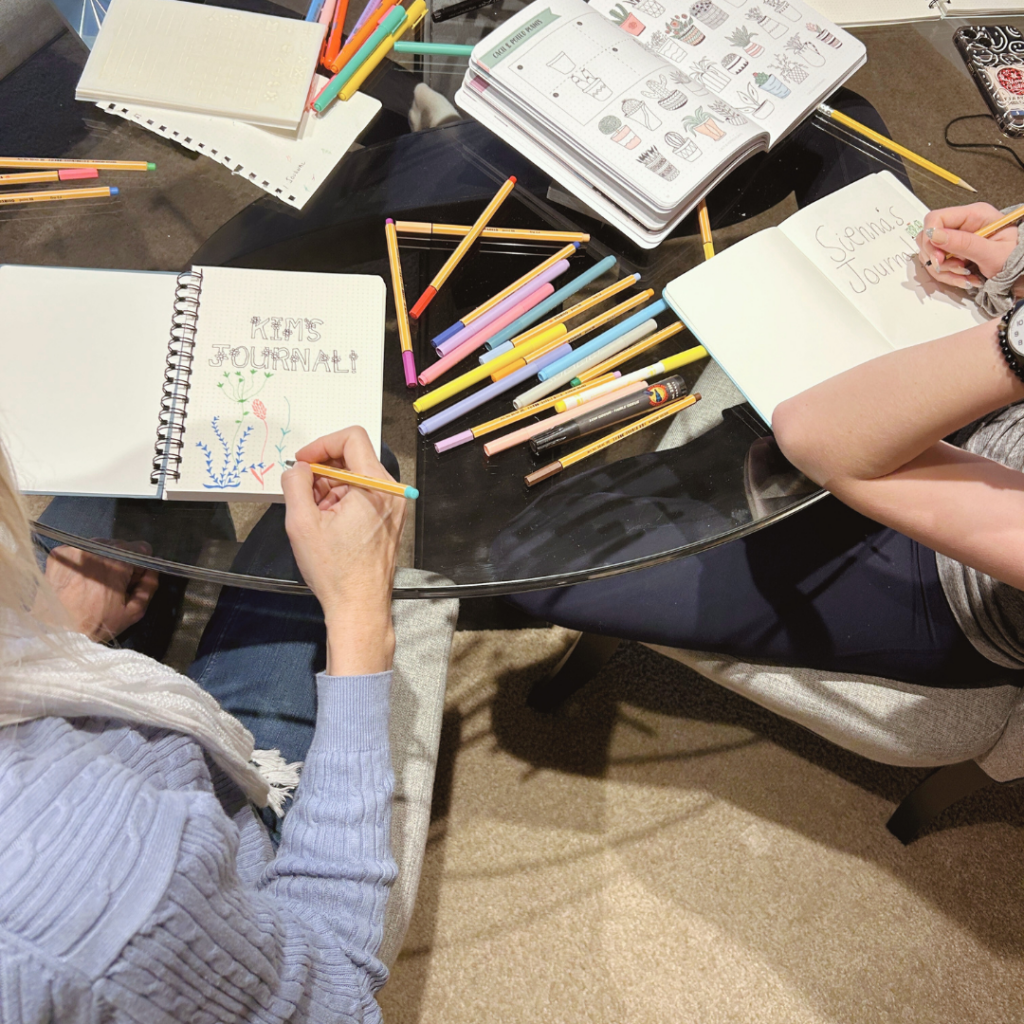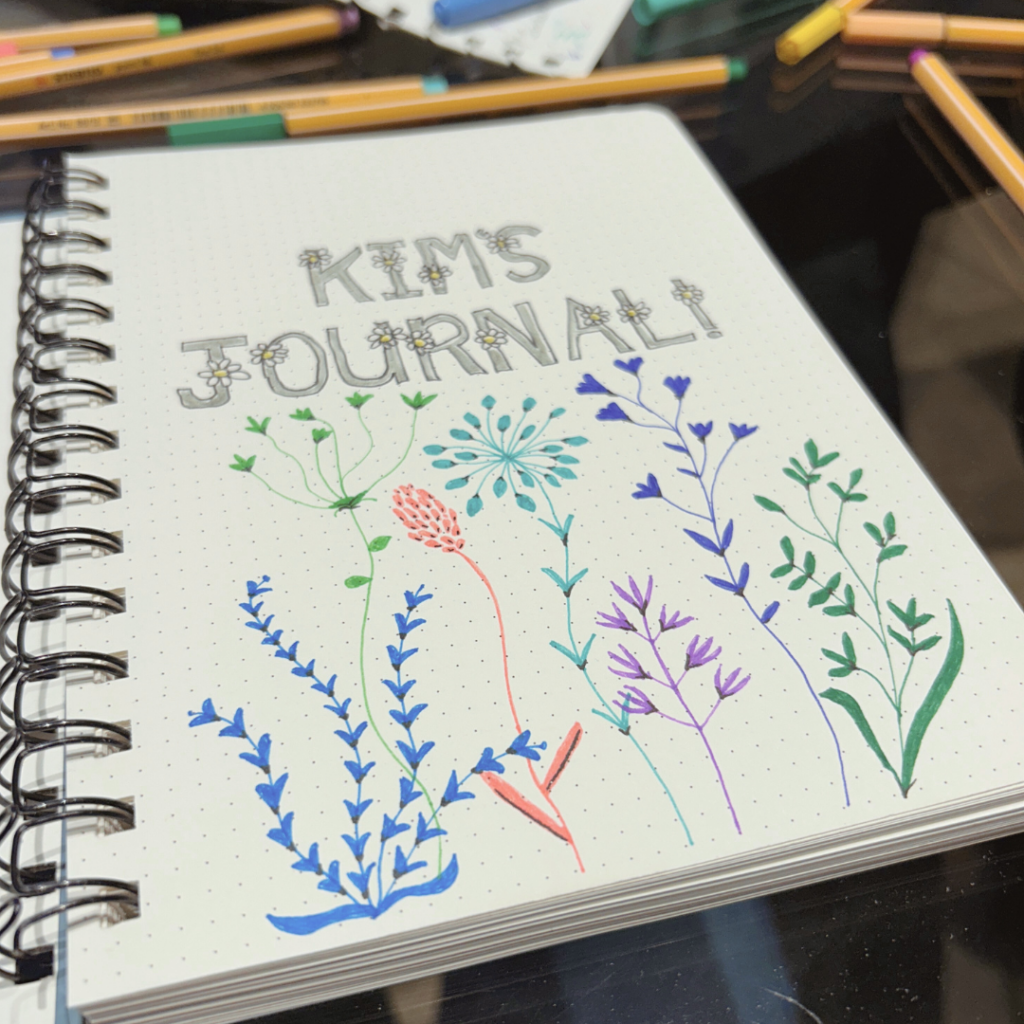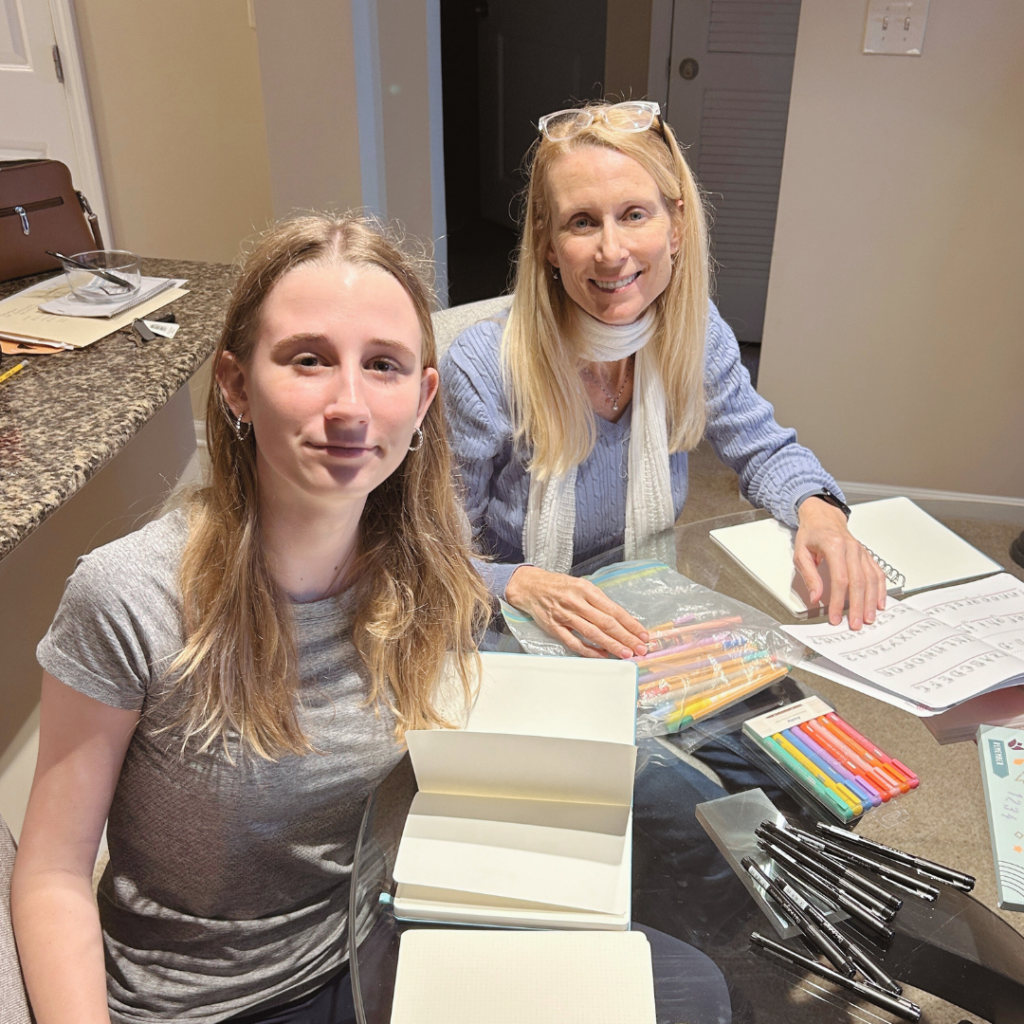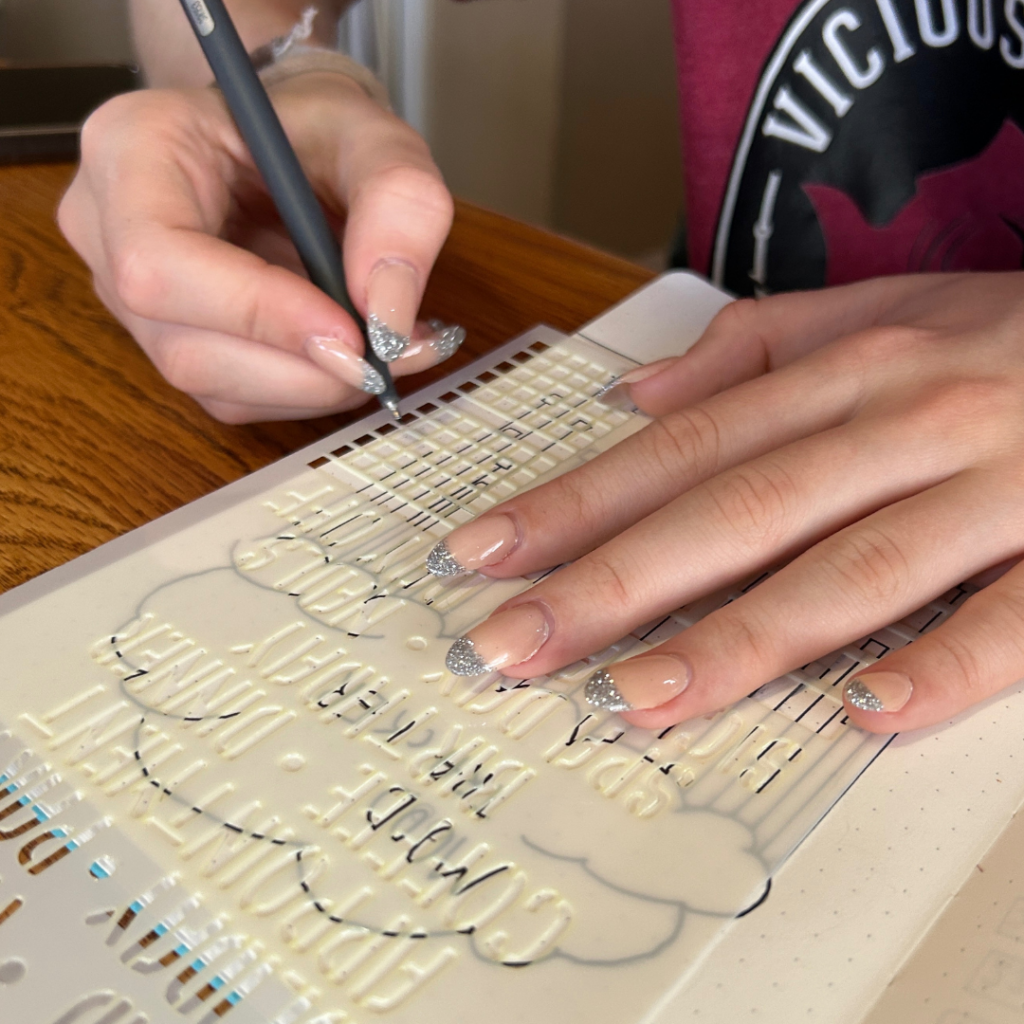The Transformative Magic of Journaling Daily

What are some of the things that we all want in life? We want to be healthier, fitter, stronger, happier, wealthier, and feel good.
Not only do we want to be healthier and happier, but we want that goal to extend to all areas of our life simultaneously – Family, partner, career, friends, work, spirituality, self-love, etc.
Within this past year, I discovered an easy-to-implement system that has enabled me to radically change my lifestyle from one that was unhealthy and stagnant to one that is healthy, exciting, diverse, and freaking awesome. I didn’t know it was possible to improve all areas of life simultaneously, but it is!
And I didn’t have to use willpower or force myself to do anything. Keep reading to find out if this will work for you too.
The Game Changer – Daily Journaling
Today, I want to dive into a habit that has been a game-changer for me and many successful individuals. It can undoubtedly bring a wave of positive transformation into your life. The game-changer is daily journaling. It took me quite a while to discover how impactful journaling can be, so I hope my story will enable you to get results quickly.
And those results are to successfully improve all areas of your life.
Let’s start with the basics – what is journaling daily all about? It’s more than just jotting down your thoughts or tracking your growth; it’s a powerful tool that can help you make sense of your emotions, set and achieve goals, and track your growth.
Imagine your mind as a vast landscape filled with thoughts, dreams, and ideas. Journaling is like having a map to navigate through this terrain. It allows you to unload the clutter in your mind, giving you a clearer perspective on your life’s journey.
“Keeping a journal will absolutely change your life in ways you’ve never imagined.”
Oprah Winfrey
I couldn’t agree with Oprah more.
Tracking Leads to Results
My discovery of the power of daily journaling was preempted by my brother gifting me his old Apple watch.
The one reason I wanted an Apple watch was to track my walking steps. Earlier in the year, I committed to walking daily and liked the idea of keeping track of my steps. I felt a sense of achievement when I was notified by the watch that I met my daily goal.
This commitment to walk was the first fitness goal I’ve ever made and kept (now, for almost two years). And if truth be told, I didn’t commit to walking for benefit. My mom was recovering from a major heart operation, and the doctors told her to walk every day. I committed to making her walk daily, meaning I’d go with her.
My mom ended up in the hospital again, and I remember thinking that I had a choice to make about whether I should carry on walking. I was doing it for her benefit.
A lightbulb went on in my head, and I realized I needed to walk for my own benefit.
I needed to take care of myself. Something clicked inside my brain or heart, making me realize that I’d spent most of my life doing things to help others and not thinking about what was best for me.
This pattern of putting everyone else ahead of myself was a huge epiphany. One that I hope everyone eventually gets to experience. But I’ll save that story for another article. Let’s return to the Apple watch and how this led me to an exponentially fantastic transformation.
If you’ve never used a fitness tracking device, it monitors things like steps, the times you stand throughout the day, and your heart rate, and it can track workouts such as Yoga, weight training, interval training, etc. The Apple Watch has a fitness program set up as default and tells you when you achieve your exercise goal, such as 30 minutes of walking, move goal, such as burning X amount of calories per day, and there is also a standing goal, ensuring you stand 8 to 12 times per day.
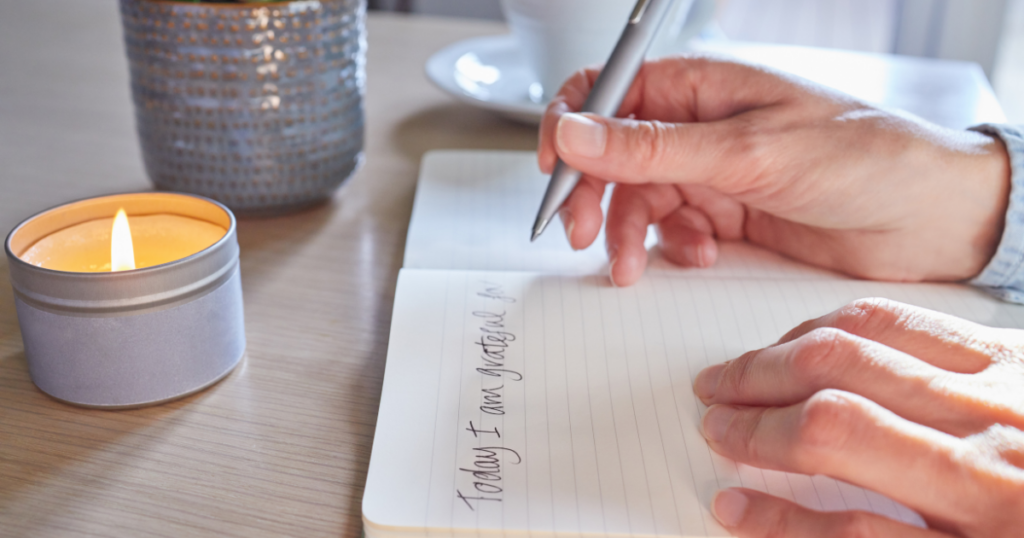
It’s not that we are bad at Creating new habits; it’s that we haven’t found a system that works.
When I started using the watch, I worked towards the goals that were set up by default. For every goal I achieved, I received a visual congratulations. When I completed all three goals, the watch lit up and provided a firework display. Further, the watch provided awards for things like seven days of meeting goals or doubling a goal.
It took me only a short time to feel obligated to meet my three fitness goals – exercise (walking for 30 minutes), move goal (bringing 170 calories), and stand goal (standing eight times throughout the day). When looking over a week or month, I loved seeing a visual representing my consistent achievements. I’d also get upset if I missed a day and there was a hole in my trend.
Logically, I made fun of myself and thought, this is what gamifying your life means.
If you want a new habit, like journaling daily, find a way to make it a game. Yes – the system that worked for me was to turn walking into a game. And the way I did that was to measure myself. Can I get an award every day for a week or a month? How about longer?
Interestingly, a law that describes this phenomenon is Pearson’s Law.
“When performance is measured, performance improves. When performance is measured and reported back, the rate of improvement accelerates.”
Pearson
And that’s precisely what happened to me.
I started with my Apple Watch and then played with other ways to track things I wanted to improve. My daughter, Sienna, introduced me to bullet journaling, a form of journaling daily, and I became hooked. Bullet journals are simply journals with dotted paper. If you search ‘bullet journal ideas’ on Pinterest, you’ll find inspiration on things to track or doodles to create in your journal.
Journaling Daily Ideas Include exercise log, vitamins, sleep, gratitude, mindfulness, water intake, etc.
Some journal tracking charts are created by hand, where you use stencils or create tracking areas with markers or doodles. Other journal entries can be printed out and filled in.
To journal daily, I purchased a bullet journal from Amazon. My daughter already had stencils and colored markers, so I used those. At first, I stared at a blank page and thought, where do I start? The first thing I did was create a page titled “Kim’s Journal.” It wasn’t easy to use freehand to draw something on paper. It’s been years since I did any kind of drawing or doodling – I was scared of making a mess of it.
But I carried on. I also LOVED that it was a way to spend quality time with my daughter. Journaling daily ticked so many boxes.
My aim was to track things I wanted to improve and see if the tracking made a difference.
I also wanted to track things I wanted to change in my life. For years, I’ve wanted to stop drinking or drink less, so I created a page to track my alcohol consumption. Also, I was sideswiped by perimenopause symptoms! Out of nowhere, I had a panic attack and anxiety; I lost all my energy, had pain in my shoulder and elbow, and had hot flashes. No one warned me about this!
I started tracking my perimenopause symptoms to determine if they changed due to the other things I was tracking – sleep, diet, alcohol consumption, and exercise. In the first week, I tracked a couple of things, and then I’d add something else over time. It was vital for me to have fun with it and really make it a game. Otherwise, I feared I wouldn’t continue.
Also, aside from tracking the things I wanted to change, I also wrote down my thoughts, feelings, challenges, and dreams.
I started learning more about myself by using journaling daily prompts or questions requiring thoughtful responses. The more I journaled, the more I determined what I wanted. This magic seems to happen when you sit down on a piece of paper and start writing.
For my free writing, I use a different journal, just lined paper. I write the date, list the journal prompt, and just start writing. I don’t put any pressure on myself to fill a page. And if I’m on a roll, I don’t stop myself. In my head, I often say, ‘There are no rules.’
To give you an idea of journaling daily prompts, some examples to discover your authentic self are as follows:
- What values matter most to me, and how do they influence my decisions and actions?
- Describe a moment in my life when I felt truly alive and authentic. What made it special?
- What are my top strengths, and how do they contribute to my personal and professional life?
- Think about a challenging situation I’ve faced. How did I handle it, and what did it reveal about my character?
- List three things that bring me pure joy and fulfillment. Why are they important to me?
Journalling daily took little time, and the rewards kept growing.
I wouldn’t have believed this, but daily journaling radically transformed my life.
Through journalling, all the areas of my life are getting better every day – self-care, meaningful relationships, creative expression through my work, and I’m having FUN, too!
Since I stayed committed to walking every day for over a year and enjoyed tracking my progress, I’ve had the confidence to start a strength training program, and it’s been a month now that I’ve shown up every day.
The crazy thing is that I haven’t had to use any willpower. Keep reading to see how journaling daily can benefit you.
My old system for a new habit or changing a habit was to pick a date in the calendar and say, ‘From now on, I’m going to do XYZ.’ I’d last three days if that! This new system of tracking a new habit is working amazingly well.
Gretchen Rubin says it best…
“Maybe there’s something you’d like to change in your life – to get more of something good or less of something bad. Try this: figure out a concrete way to measure and track it. By counting the things that count – and pushing yourself to find a way to count the things that seem like can’t be counted – you make sure they’re part of your life.”
Gretchen Rubin
Now, I’d like to back up a bit. Knowing that the old me could not follow through on any habit change is essential.
I’ve tried to start exercising, stop drinking so much, eat healthier, deepen my relationships, increase my income, and get better sleep. Time and time again, I failed. I thought I was incapable of changing. My issue wasn’t that I can’t change. As I mentioned above, my issue was that I needed a system that worked for me!
“For a successful life, or successful business, measure what you want to improve.”
Jerry Brucker
Let’s break down some of the incredible benefits of daily journaling.

Benefits of Daily Journaling – Let’s get you started
1. Clarity in Chaos
Life can be a whirlwind of emotions, decisions, and challenges. Journaling acts as your lighthouse, cutting through the fog and providing clarity. When you put pen to paper, you are forced to articulate your thoughts, helping you understand your feelings and unravel the complexity of your mind. It’s like turning on a light in a dimly lit room; suddenly, everything becomes clearer.
Every morning, I commit to journaling daily. I write in my journal for a 1/2 hour or so. Sometimes, I answer journal prompts; other times, I jot down a dream I remembered. Sometimes, something weird or crazy will happen, and I’ll make a note of it. What helps is looking back through my journal and seeing how far I’ve come or simply noticing that I was totally in the dumps two days ago, but today, I feel super happy. Seeing my ups and downs for what they are – temporary- has helped me become more balanced. It also lets me pull out of drama and become more present. Read about an example of one of my down days here.
2. Goal Setting and Achievement
Use a journal to outline your goals, break them down into manageable steps, and track your progress. It’s like creating a roadmap for your success. Psychologist Dr. Gail Matthews conducted a study that found people who wrote down their goals were 42% more likely to achieve them. Now, that’s a statistic that speaks volumes!
At the front of my tracking journal, I have five monthly goals. I have five because there were five boxes in the template (no other reason!).. I then have separate pages tracking things that help me achieve those goals. For example, one of my goals was to find and start a strength training program for someone who has never worked out and is going through perimenopause. I found the perfect program, and the teacher provided a tracker that I printed and pasted into my journal.
I’ve always struggled to be a good goal-setter. I know about SMART goals (specific, actionable, realistic, time-bound). I’d write them on paper, create actionable steps, and then lose the paper! Now, I decide what I want and make that a goal. I then ask myself what things I can track will lead me to that goal. I then track it in my journaling daily. There’s no way to lose the paper or forget my priorities.
3. Stress Relief and Emotional Well-being
Life throws curveballs at us, and dealing with stress is a part of the game. Journaling is your emotional release valve. Pouring your feelings onto paper can be incredibly therapeutic, reducing stress and promoting well-being. It can also stop overthinking. It’s like having a heart-to-heart conversation with your most trusted confidant—yourself.
More times than not, when I am angry and start writing, I tend to get all my energy out and then finish with a positive message to myself about a lesson learned or a way forward. Writing is so therapeutic because it forces you to focus in a controlled manner. Whenever I journal in anger, I’m surprised at where my writing takes me. It always ends up being uplifting, which is not what I expect.
Also, by journaling daily, the bad days don’t seem so bad when I look back at all my progress.
4. Reflecting on Growth – journaling daily
Think of your journal as a time capsule of your evolution. When you flip through the pages, you’ll witness the journey you’ve traveled, the lessons you’ve learned, and the person you’ve become. It’s like having a front-row seat to your own success story.
This is so important. We’re so busy living life that we fail to take the time to see how much we’ve grown. There’s always a new challenge! When we take the time to look back at our journey, we’ll realize how far we’ve come and gain strength and confidence in how far we can go.
Just flipping through my journal now, I found an entry where I was struggling with an upcoming flight I had to take. At the time, I didn’t realize it was a hormonal issue, but I was having panic attacks when I flew. Knowing I had to take a flight caused me to start getting anxious weeks before the flight.
Once I discovered the anxiety and panic were coming from a lack of estrogen due to perimenopause, I started taking and tracking vitamins and supplements that reduce symptoms. I did a variety of other things that I tracked, too. And now, looking at the journal entry, it’s hard for me to remember feeling that anxiety at all. It’s now gone! Yeah, Kim! I never took the time to look back and see my progress. Having these journals has helped me to know that I am moving forward. I am making positive changes.

Creating Space for growth and freedom
The renowned psychologist and Holocaust survivor Viktor Frankl once said, “Between stimulus and response, there is a space. In that space, we have the power to choose our response. In our response lies our growth and our freedom.” Journaling creates that precious space, empowering you to choose your responses consciously and facilitating personal growth.
What are some journaling tips for beginners? Build a journaling habit by starting small, with a few minutes each day. The benefits will unfold gradually, like a flower blossoming under the sun.
Remember, journaling is not just about the words on the paper; it’s about the journey you embark on each time you open your daily journal. Your thoughts, dreams, and goals are waiting to be unleashed, and your pen is the key to journaling daily.
Take that pen, champions, and script the life you deserve. The transformative magic of journaling awaits! Please comment below and let me know if you are committed to journaling daily and how it’s impacted your life.
